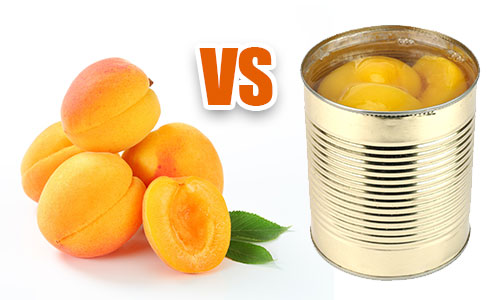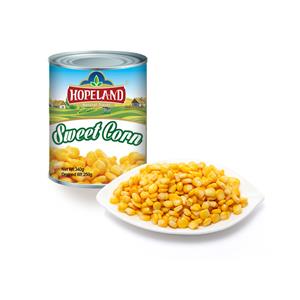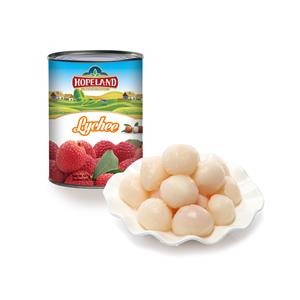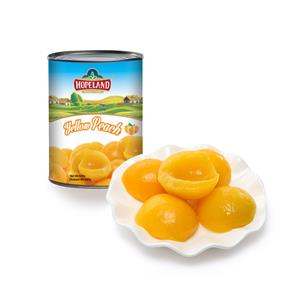Are Canned Fruits Healthy? Canned Fruit vs Fresh Fruit
When it comes to eating a balanced diet, fruits are often at the top of the list for their natural sweetness, vibrant colors, and impressive nutritional value. But what about canned fruits? Are they as healthy as their fresh counterparts? For years, people have debated whether canned fruit can provide the same benefits as fresh produce or if it's a compromise in terms of health and quality.
In this article, we’ll dive deep into the nutritional value of canned fruits, compare them with fresh fruits, and help you decide which one deserves a place in your pantry and on your plate.
The Nutritional Profile of Canned Fruits
Canned fruits are convenient, affordable, and available year-round. But do they still retain their vitamins, minerals, and antioxidants after processing? The answer is both yes and no, depending on several factors.
Vitamins and Minerals in Canned Fruits
Most fruits are canned within hours of harvest, which means their nutrients are sealed in at peak ripeness. However, the canning process involves heating the fruit to kill bacteria and preserve it for longer shelf life. This heat treatment can lead to some loss of heat-sensitive nutrients like vitamin C and certain B vitamins.
For example:
Vitamin C levels can drop by 10–30% during canning.
B vitamins, particularly folate, may also decrease slightly.
Minerals like potassium, magnesium, and calcium remain relatively stable and are not significantly affected by canning.
On the plus side, canned fruits can sometimes have more antioxidants than fresh ones because the heat may make certain compounds, like carotenoids in peaches and tomatoes, more bioavailable.
Added Sugar and Syrups
One of the biggest concerns about canned fruit is the presence of added sugars. Many varieties are packed in heavy syrup, which can add unnecessary calories and spike blood sugar levels. Fortunately, you can now find canned fruits labeled:
Packed in juice (100% fruit juice instead of syrup)
Packed in light syrup (lower sugar content)
No sugar added or unsweetened (best choice for health-conscious consumers)
Choosing canned fruits in juice or water means you get the convenience without the extra sugar. Always check the label carefully.
Fresh Fruits: The Gold Standard?
Fresh fruits are often seen as the gold standard of nutrition because they’re minimally processed and consumed close to their natural state. But does fresh always mean better?
Nutrient Content in Fresh Fruits
Fresh fruits are rich in vitamins, minerals, fiber, and antioxidants. When eaten raw, they retain all their water-soluble vitamins, like vitamin C and folate. However, the nutrient content of fresh fruit can vary based on:
Harvest timing – Fruits picked before full ripeness may have lower nutrient levels.
Storage and transportation – Vitamin C can degrade during long transport or storage periods.
Preparation methods – Peeling and cutting may reduce some antioxidant levels.
So while fresh fruits are highly nutritious, they’re not immune to nutrient loss during distribution and storage.
Seasonal and Geographic Limitations
Fresh fruits aren’t always in season, and depending on where you live, certain varieties might be expensive or unavailable. Out-of-season fruits often travel thousands of miles before reaching your local grocery store, which can affect their flavor and nutritional quality.
Comparing Canned Fruit vs Fresh Fruit: Pros and Cons

Let’s break it down further with a side-by-side comparison.
Feature | Canned Fruits | Fresh Fruits |
Availability | Year-round, regardless of season | Seasonal and may be limited by region |
Convenience | Pre-cut, peeled, ready to eat | Requires washing, peeling, cutting |
Shelf Life | Long shelf life (3 years unopened) | Short shelf life (days to weeks) |
Nutrient Retention | Slight loss of heat-sensitive vitamins | Higher vitamin content if freshly picked |
Added Ingredients | May contain sugar, salt, or preservatives | No added sugar or preservatives |
Cost | Generally more affordable | Can be more expensive, especially out of season |
Flavor and Texture | Softer texture due to canning | Crisp, fresh texture |
Are Canned Fruits Good for You?
The short answer: Yes, canned fruits can be part of a healthy diet when you choose wisely.
Here’s why:
Convenience means consistency – You’re more likely to meet your daily fruit intake when canned fruits are within arm’s reach in your pantry.
No spoilage waste – They last longer than fresh fruits, reducing food waste and saving money.
Nutritionally adequate – Despite slight nutrient losses, canned fruits still provide fiber, minerals, and antioxidants.
Pro Tip: Rinse canned fruits packed in syrup under running water before eating to reduce sugar content.
Health Tips for Choosing and Using Canned Fruits
To make the most of canned fruits:
Choose “no sugar added” or packed in 100% juice – Avoid heavy syrup.
Look for BPA-free cans – Many brands now use BPA-free linings to avoid potential health risks.
Incorporate them creatively – Add canned peaches to oatmeal, mix canned pineapple into stir-fries, or toss canned mandarin oranges in salads.
Pay attention to sodium – While less common in fruits, some canned fruit cocktails may contain added salt.
When Fresh Might Be Better
There are scenarios where fresh fruit is preferable:
When you need the full vitamin C content (like in citrus fruits).
For recipes where texture matters, such as fruit platters or salads.
When buying locally grown produce at peak ripeness.
The Verdict: Canned Fruit vs Fresh Fruit
Canned fruits are not an inferior choice—they’re simply different. Both fresh and canned fruits have a place in a balanced diet. Choosing the right option depends on your lifestyle, budget, and access to fresh produce.
Think of canned fruits as a complement, not a replacement. When fresh fruit is out of season, too expensive, or likely to spoil before you use it, canned fruits step in as a nutritious, practical solution.
Key Takeaways
Canned fruits retain most of their nutrients but may lose some vitamin C during processing.
Avoid varieties packed in heavy syrup to cut down on added sugars.
Fresh fruits are ideal for peak nutrients and crisp texture, but they’re not always available.
Both options support a healthy diet and count toward your daily fruit servings.
Final Thoughts
So, are canned fruits healthy? Absolutely—if you choose the right ones. While fresh fruits will always be a staple of a nutrient-rich diet, canned fruits offer convenience, affordability, and year-round availability. Whether you’re preparing a quick smoothie, a vibrant fruit salad, or a comforting dessert, don’t overlook the humble can—it might just be your best ally in staying healthy.
Remember: The best fruit is the one you actually eat—fresh, canned, frozen, or dried.




